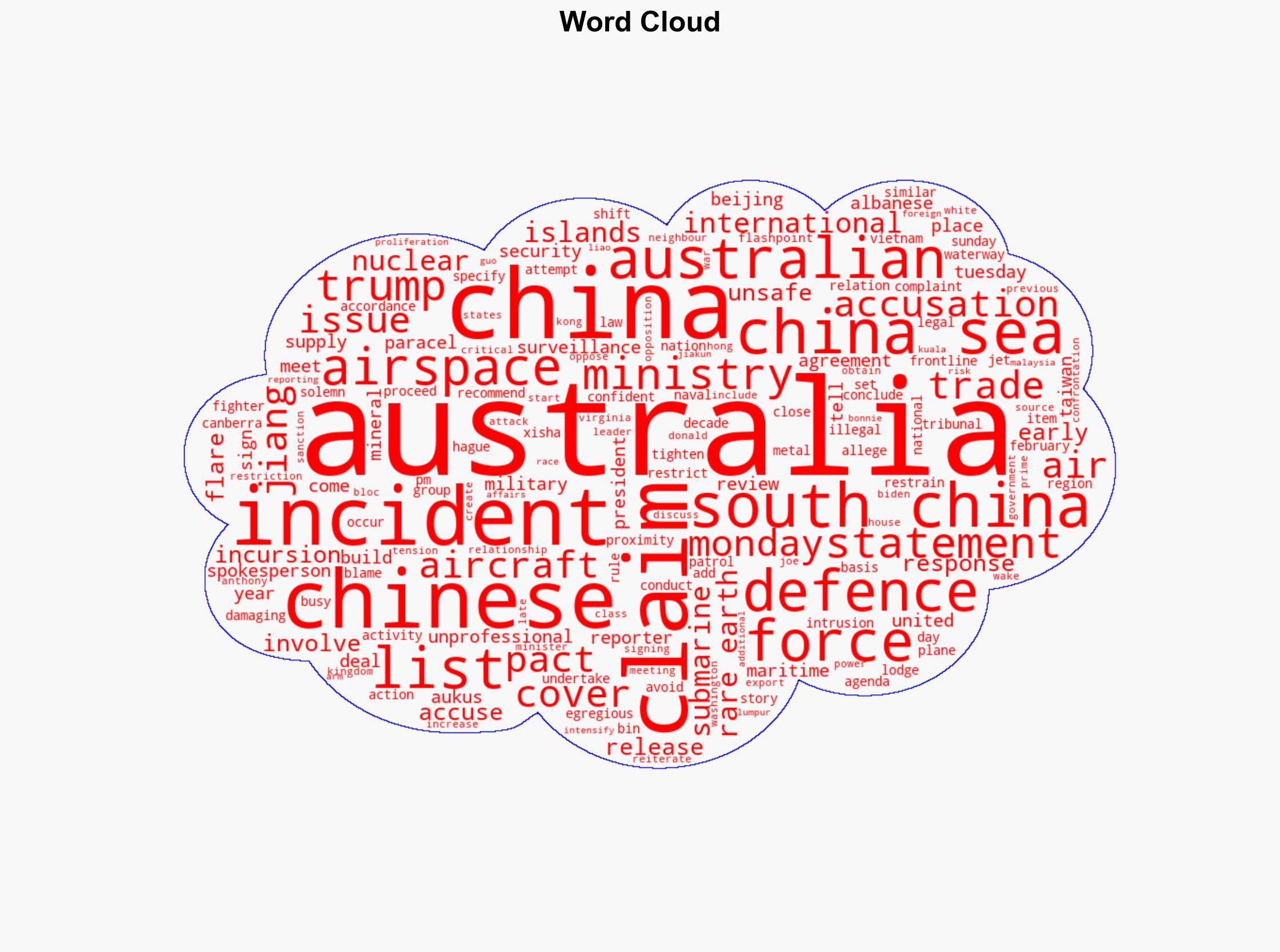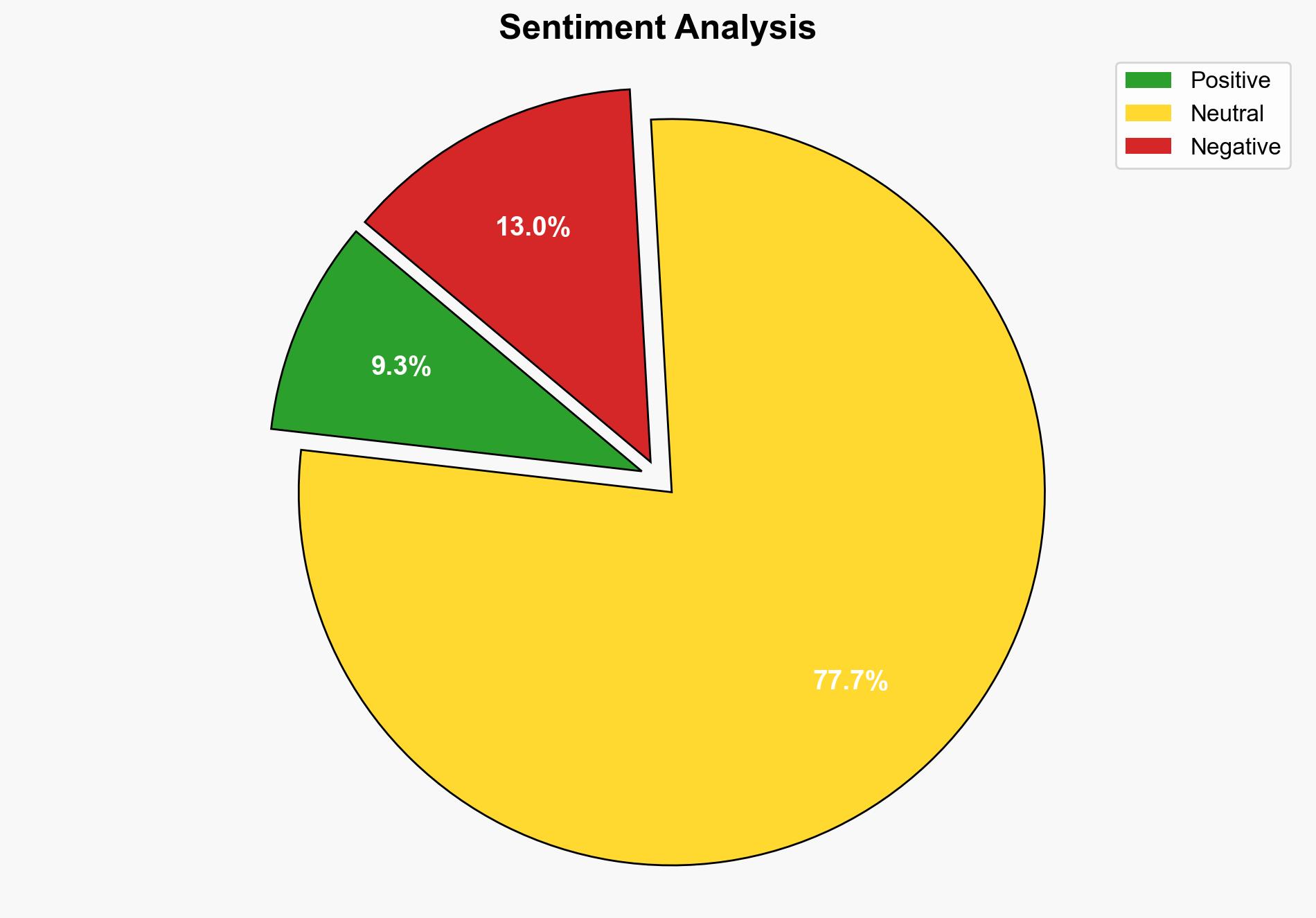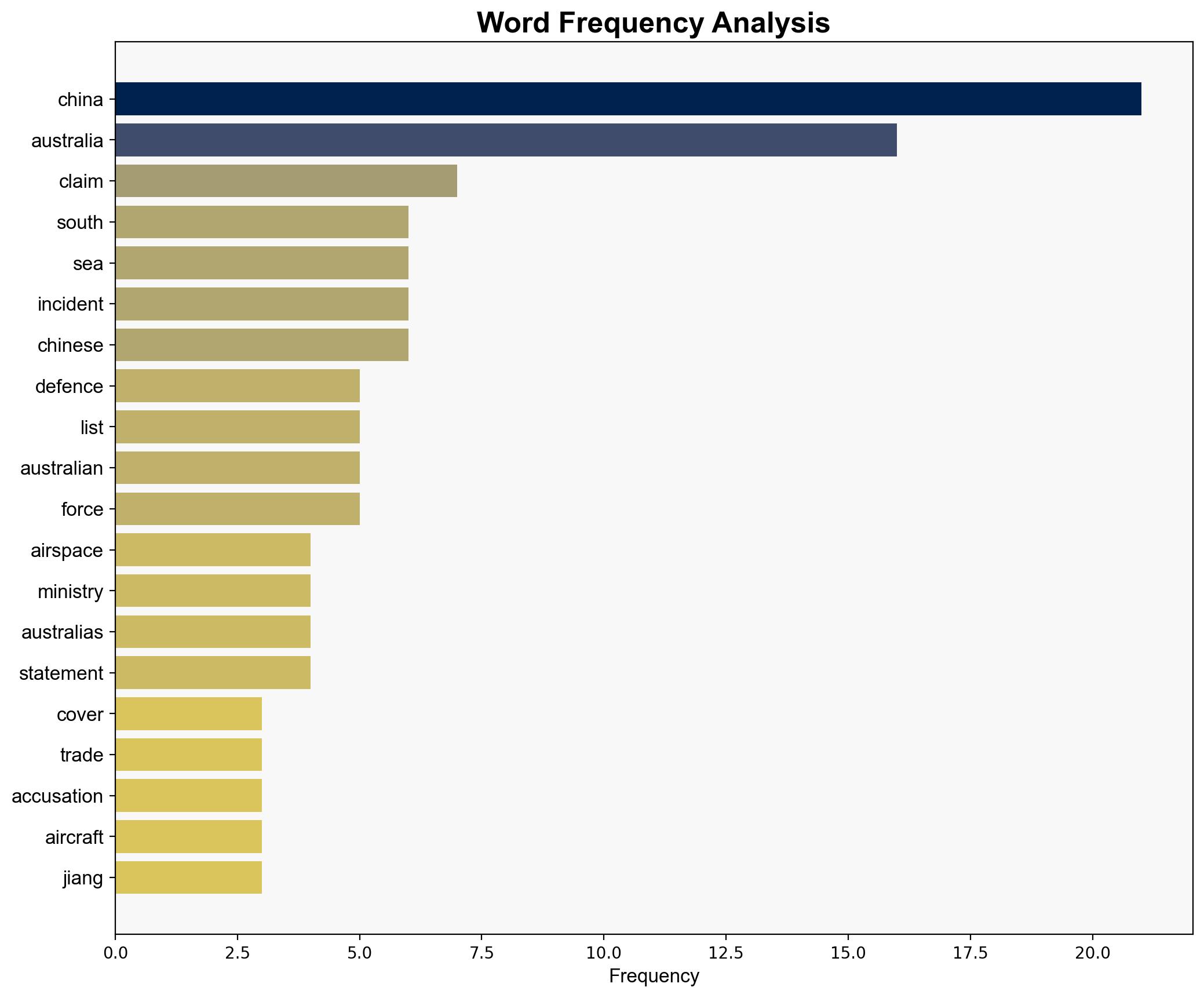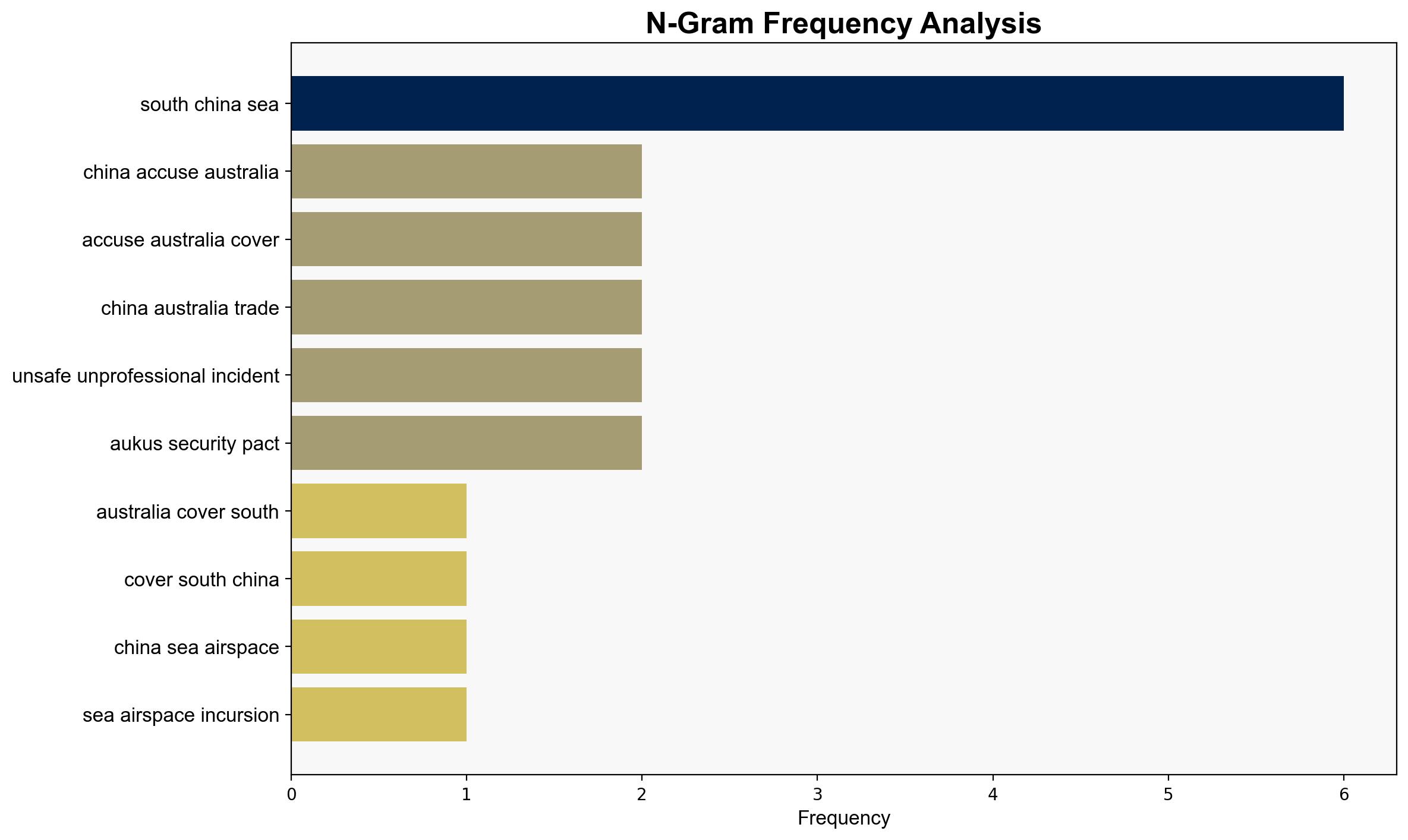China accuses Australia of covering up South China Sea airspace incursion – Al Jazeera English
Published on: 2025-10-22
Intelligence Report: China accuses Australia of covering up South China Sea airspace incursion – Al Jazeera English
1. BLUF (Bottom Line Up Front)
The most supported hypothesis is that China’s accusation against Australia is a strategic maneuver to assert its territorial claims in the South China Sea and counterbalance Australia’s alignment with the AUKUS security pact. Confidence level: Moderate. Recommended action: Enhance diplomatic engagement with regional allies to reaffirm commitment to international maritime laws and de-escalate tensions.
2. Competing Hypotheses
1. **Hypothesis 1**: China’s accusation is a genuine response to an Australian airspace incursion, aiming to protect its territorial sovereignty.
2. **Hypothesis 2**: The accusation is a strategic move by China to reinforce its claims in the South China Sea and counter Australia’s involvement in the AUKUS pact.
Using ACH 2.0, Hypothesis 2 is better supported due to the timing of the accusation coinciding with Australia’s strategic moves in the region, such as the AUKUS pact and rare earth agreements, which threaten China’s regional influence.
3. Key Assumptions and Red Flags
– **Assumptions**: Both hypotheses assume accurate reporting of the incident details and that both nations’ statements reflect their strategic interests.
– **Red Flags**: Lack of independent verification of the incident details; potential bias in media reporting; absence of corroborating evidence from neutral parties.
– **Cognitive Bias**: Confirmation bias may affect the interpretation of China’s actions as aggressive due to pre-existing tensions.
4. Implications and Strategic Risks
– **Geopolitical**: Escalation of tensions could lead to increased military presence and potential conflicts in the South China Sea.
– **Economic**: Strained relations may impact trade, especially in critical minerals and rare earths.
– **Psychological**: Heightened nationalistic sentiments could influence public opinion and policy decisions in both countries.
5. Recommendations and Outlook
- Engage in multilateral dialogues with ASEAN and other regional stakeholders to reinforce adherence to international maritime laws.
- Enhance intelligence-sharing mechanisms with allies to monitor and verify incidents in contested areas.
- Scenario Projections:
- **Best Case**: Diplomatic resolutions lead to de-escalation and strengthened regional cooperation.
- **Worst Case**: Military confrontations escalate, disrupting trade routes and regional stability.
- **Most Likely**: Continued diplomatic tensions with periodic incidents, requiring ongoing management and negotiation.
6. Key Individuals and Entities
– Jiang Bin (Chinese Ministry of National Defence spokesperson)
– Anthony Albanese (Australian Prime Minister)
– Donald Trump (Former U.S. President)
– Guo Jiakun (Chinese Ministry of Foreign Affairs spokesperson)
7. Thematic Tags
national security threats, regional focus, geopolitical tensions, maritime security, international law





